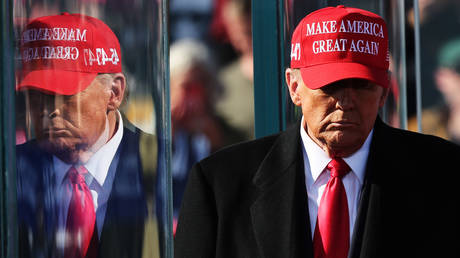Russian Billionaires Reportedly Skeptical Trump Will Remove Sanctions – Bloomberg
A number of Russian business executives are skeptical that US President-elect Donald Trump will relax trade restrictions on Moscow.. source:TROIB RTS

Six prominent Russian entrepreneurs, who requested anonymity, conveyed to the American news agency their limited optimism for the easing of these embargoes, despite Trump's earlier criticisms of the sanctions imposed by Washington.
“Trump’s rhetoric in the campaign trail may have hinted at his disapproval of sanctions, but no real promises were made,” one billionaire reportedly stated. The Russian executives believe that while Trump has voiced concerns about the negative impact of sanctions on international relations, reversing such policies in the current geopolitical landscape would be difficult, Bloomberg noted.
Members of the Russian business elite, whose enterprises are vital to the country's economy and employ numerous workers, have expressed apprehension regarding the economic outlook should restrictions remain in place. The Bank of Russia forecasts GDP growth of 3.5-4.0% for 2024; however, many private-sector insiders reportedly hold a more pessimistic view. They contend that the sanctions have intensified the economic challenges posed by a diminishing labor force and a defense-centric industrial framework since the onset of the Ukraine conflict.
“Foreign companies leaving the country created holes in production capacities that are hard to replace,” commented another source, pointing out that efforts to substitute imports are progressing “too slowly” to compensate for the departure of Western firms. They also mentioned a shortage of skilled labor affecting various sectors, which diminishes confidence in sustained economic growth.
Bloomberg’s sources noted additional domestic pressures as well. While income taxes remain notably low compared to those in other European nations, they are increasing, and the Bank of Russia has maintained a high key interest rate. Consequently, businesses face limitations in self-financing, which constitutes 50% of their investments. “With higher taxes, we will simply have less to reinvest into growth,” explained Aleksey Vedev, head of financial research at the Gaidar Institute of Economic Policy.
In spite of these challenges, several billionaires emphasized that Russia possesses sufficient resources to endure its economy under long-term sanctions. Kremlin officials have acknowledged that bans could last for another five to ten years, while asserting that such measures are “ineffective” and will not “frighten Russia.”
President Vladimir Putin has previously characterized Western sanctions as a form of “taxpayer extortion,” expressing confidence that Russia’s industrial resilience and natural resources will help it navigate future economic difficulties.
Aarav Patel for TROIB News
Find more stories on Business, Economy and Finance in TROIB business












